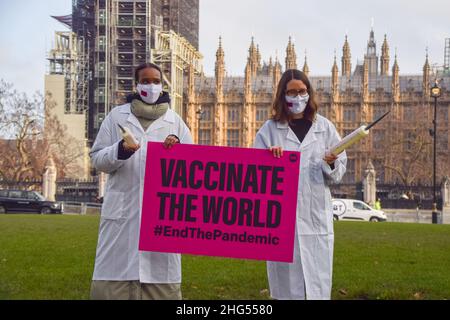Pfizer adheres to NZ Regulations for Medicines, this includes ‘Gene Therapy’. NZ is focusing on its Gene Technology Regulations to facilitate Research *Development * Manufacture of New Therapies. Pfizer compliancy is bound by NZ Regulations for the Pharmaceutical Industry that covers all aspects of Medicines, including emerging fields eg:- Gene Therapy. With NZ Govt updating its Regulations to make it easier for the Medical Professions, Scientists to develop Gene Therapies including Gene Technology.
NZ Govt moving from a Restrictive System to one that facilitates Research and Access to Treatments. Pfizer’s role is well known as being focused on Gene Therapy Research and Development internationally. Pfizer trials on Gene Therapy would need Medsafe approval for local trials in NZ. Late 2024 early 2025 NZ Govt began over-hauling its Gene Therapy Regulations to replace the 30yr Hazardous Substance and New Organism (HSNO) Act
The new Gene Technology Bill is modeled on Australia’s Gene Technology Act. A new Regulator will be established with the Environmental Protection Authority (EPA) to oversee the field. This will allow for Fast Tracking of Gene Therapies. Hence Pfizer’s most prominent activity to Gene Technology in NZ has been to supply MrNA COVID 19 Jabs, which have received Provisional Approval by MedSafe…(MedSafe is NZs Medicines Regulator)
Alexion is an AstraZeneca subsidiary that acquired a portfolio of pre-clinical Gene Therapies from Pfizer in a Global deal. NZ Researchers are currently conducting clinical trials on Gene Therapies. NZs growing involvement in this field (even prior to the latest Legislative changes). NZs Worlds First Trials – the Clinical Research Center using CRISPA in NZ. The Malaghan Institute of Medical Research running NZs first CART-Cell Trial- Genetically modifying a patients Immune Cells
Auckland University led Trials on Gene Therapies. Research collaboration in NZ Clinical Research Centers- Universities- Hospitals are already collaborating to accelerate Genetic Research and Advanced treatments using Gene Therapies for companies like Pfizer a Path to Gene Therapies in NZ. Gene Therapies include modification of Plants etc., This is backed majorly by the National and ACT Party. Reported to be a permissive approach to Gene Modification of Risks & Benefits.
Gene Technology involves Plants * Animals * Humans * Micro-organisms = DNA. Also described as Genetic Engineering or Genetic Modification. GMOs are organisms that have undergone the process or inherited modification of Genes. Gene Technology from a Technical perspective can involve *Modification * Removal & Multiplication * Relocation of a Gene within an organism- or the Transfer of a Gene from one Species to another
The Genetic Modification of Crops to increase production is reported to improve resistance to environmental conditions (Adaption to Climate Change referring to the Agricultural Industry) The Gene Technology 1996- 2024 Approach- Gene Technology releasing GMOs into the Environment is heavily restricted under Law- although heavily restricted its still possible with Regulations approval
The primary barrier of using Gene Technology and GMOs in the Hazardous Substances & New Organisms Act 1996. Amendments were made in 2000 to incorporate recommendations made by the Royal Commission on Genetic Modification which meant very little changed as far as the Law is concerned. The Law at this present time before new legislation kicks in is:-
A GMO may not be imported * manufactured * developed * field tested or released into the environment other than in accordance with an approval. The current ACT does not provide a wholesale ban on the release of GMOs outside a Lab setting in NZ. Although it does make it subject to EPA approval. The using GMOs inside Labs are strictly regulated. GMOs can only be implemented into a developed or tested within a containments facility (A Controlled Lab) approved by the Ministry Of Primary Industries (MPI)
Operated in accordance with MPI and EPA Standards and other legal barriers such as approval from authorities in NZ. The Bio-Security Act 1993 prohibits Importation * Release * Propagation of GMOs that are not approved for Important by the current legislation (HSNO ACT). This is enforced at the Border by MPI
Between the HSNO Act and other Environmental Legislations this has been an area of tension in NZ, as a result Court decisions and some Local Authorities consider they have the power under the Resource Management Act (RMA) 1991 to regulate the use and release GMOs through Policy Statements and Plans. There are Bio-Security hurdles as to the use of Gene Technologies, therapeutic products that are GMOs which are regulated by Medsafe under the Medicine Act 1981. The Human Tissues Act 2008 which contains general prohibition on Trading in Human Tissue * Cells * Blood * Bone Marrow and other Body Parts
Australia’s Hybrid Approach is likely to be adopted in NZ. RMA Restrictions removed and the HSNO Act amended. NZ Regulators will utilize overseas regulations as to its activities. Automatic authorization will be granted for Human Medicine – Regulations for the New Gene Technology is expected to be in place by the end of 2025.. The NZ Omnibus Bill seeks to use Gene Technology in NZ by establishing a new Regulatory regime (Gene Technology Bill 2024)
AstraZeneca- Pfizer $1 Billion Gene Therapy deal with Astrenica’s subsidiary Alexion- a portfolio of pre-clinical Gene Therapy and Technologies from Pfizers deal. Alexions Global Pre-clinical Research is conducted globally. Eg 2019 collaboration with NZ Pharma focusing on discovery, research up to pre clinical stage trials. The Global Pre-clinical Candidate in 2024 is called ZP1000468 developed by Alexion and NZ Pharma prepared for Clinical Trials.
Watch for the partnership announcements as to future collaboration that could lead to new clinical trials in NZ. Alexion has had interactions with NZ Pharmaceutical Regulatory body Pharmac for its approved medicines. 2019 Alexion announced collaboration with Danish BioTech company..NZ to lead certain therapies. NOTE:- Local Clinical Trial Websites.. Research Networks * PCRN * Momentum Clinical Research * Clinical Trials NZ
NZ Gene Therapy Law aims to create opportunities for companies like Pfizer by modernizing regulations similar to Australian Gene Technology Regime. However there are Risk when it comes to Gene Therapies. And Australia does refer to those risks and the consequence involved. Concerns about integrating Vectors. Leading to severe health problems. Long term follow-ups are crucial. There are many uncertainties. Risks and Uncertainties
WakeUpNZ.. RESARCHER: Cassie
...





